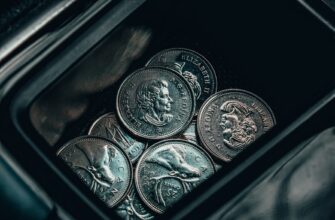- Introduction: Navigating the P2P USDT Market in Pakistan
- What is P2P Trading and Why It Matters?
- Understanding USDT: The Anchor of Crypto Transactions
- Key Factors Influencing P2P USDT Rates in Pakistan
- How to Get the Best P2P USDT Rates in Pakistan
- Mitigating Risks in P2P USDT Trading
- FAQ: P2P USDT Rates in Pakistan
- Conclusion: Mastering the P2P Landscape
Introduction: Navigating the P2P USDT Market in Pakistan
With Pakistan’s growing crypto adoption, understanding the P2P USDT rate has become crucial for traders and investors. Peer-to-peer (P2P) platforms offer a decentralized way to buy/sell Tether (USDT), a stablecoin pegged to the US dollar. This guide explores current trends, rate determinants, and strategies to secure the best P2P USDT rates in Pakistan while addressing common concerns.
What is P2P Trading and Why It Matters?
P2P trading connects buyers and sellers directly through crypto exchanges like Binance P2P or LocalBitcoins, bypassing traditional intermediaries. In Pakistan, where banking restrictions complicate crypto transactions, P2P platforms enable seamless USDT trading using local payment methods (bank transfers, Easypaisa, JazzCash). This method often offers competitive rates and faster settlements compared to centralized exchanges.
Understanding USDT: The Anchor of Crypto Transactions
Tether (USDT) maintains a 1:1 value with the US dollar, providing stability in volatile markets. In Pakistan, USDT serves as:
- A hedge against rupee depreciation
- A gateway to other cryptocurrencies
- A tool for cross-border remittances
- An alternative store of value
Key Factors Influencing P2P USDT Rates in Pakistan
The P2P USDT rate fluctuates based on:
- Supply/Demand Imbalance: High buyer demand pushes rates above USD parity; seller surplus lowers rates.
- PKR Volatility: Rupee depreciation often increases USDT premiums.
- Platform Fees: Exchanges charge varying fees, affecting net rates.
- Payment Method: Bank transfers offer better rates than e-wallets due to lower risk.
- Regulatory News: SBP announcements or government policies cause immediate rate swings.
How to Get the Best P2P USDT Rates in Pakistan
Follow these steps to optimize your trades:
- Compare Platforms: Check rates across Binance, LocalBitcoins, and Paxful.
- Analyze Seller Metrics: Prioritize traders with 95%+ completion rates and 100+ transactions.
- Time Your Trades: Rates dip during low-activity hours (e.g., late night).
- Bulk Negotiation: Large orders (500+ USDT) often secure 1-3% better rates.
- Use Limit Orders: Set your desired rate instead of accepting market prices.
Mitigating Risks in P2P USDT Trading
While convenient, P2P trading carries risks:
- Scams: Verify seller reputation and never release funds before USDT receipt.
- Price Manipulation: Avoid sellers offering unrealistic rates (e.g., 10% below market).
- Regulatory Uncertainty: Keep transaction records for compliance.
- Payment Reversals: Use irreversible methods like bank transfers.
Safety Tip: Always communicate and transact within the P2P platform—never move to WhatsApp or external channels.
FAQ: P2P USDT Rates in Pakistan
Q1: Why is the P2P USDT rate higher than $1 in Pakistan?
A: High demand, rupee devaluation, and limited banking access create premiums—typically 2-8% above USD parity.
Q2: Is P2P USDT trading legal in Pakistan?
A: While not explicitly illegal, the State Bank prohibits crypto transactions via banks. P2P operates in a regulatory gray area but remains widely used.
Q3: How often do P2P USDT rates change?
A: Rates update in real-time based on market activity. Major shifts occur during economic announcements or currency fluctuations.
Q4: Can I convert USDT to PKR instantly via P2P?
A: Yes—most trades complete in 15-30 minutes after payment confirmation. Choose “fast payment” sellers for quicker settlements.
Q5: What’s the minimum P2P trade amount?
A: Varies by seller; typically starts at 5-10 USDT (~PKR 1,500-3,000).
Conclusion: Mastering the P2P Landscape
Tracking the P2P USDT rate in Pakistan requires vigilance and strategy. By understanding market drivers, comparing platforms, and prioritizing security, traders can capitalize on opportunities while minimizing risks. As crypto adoption grows, P2P remains a vital channel for accessing digital assets in Pakistan’s evolving financial ecosystem.








